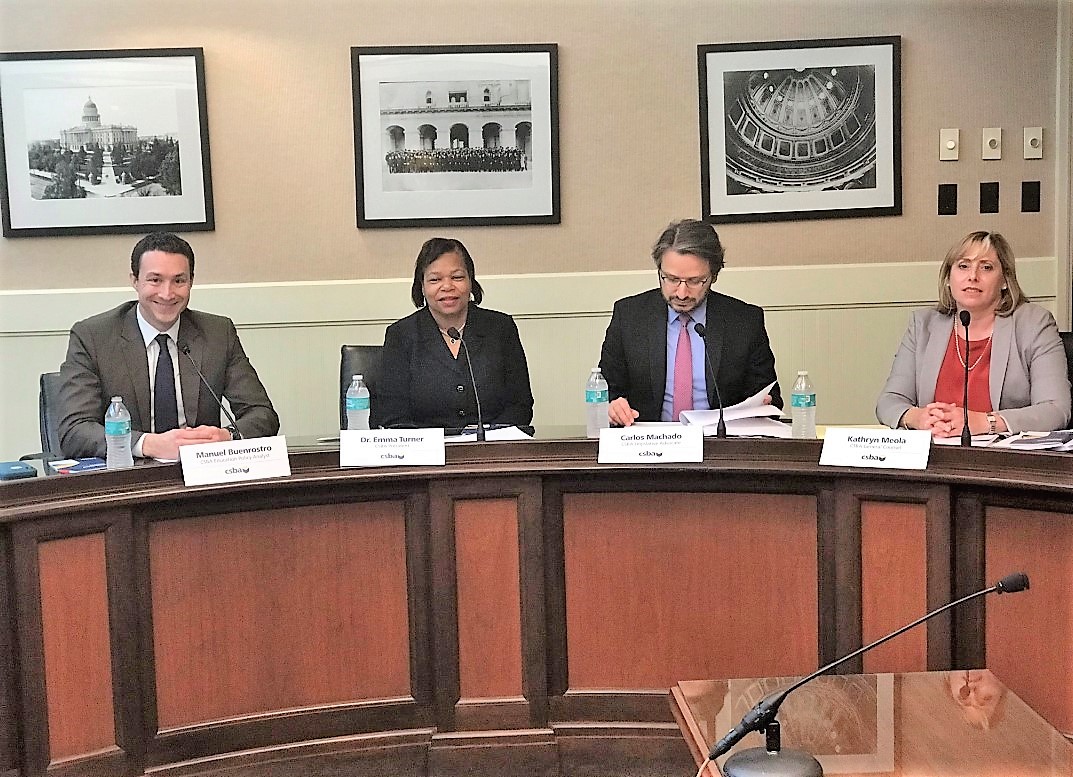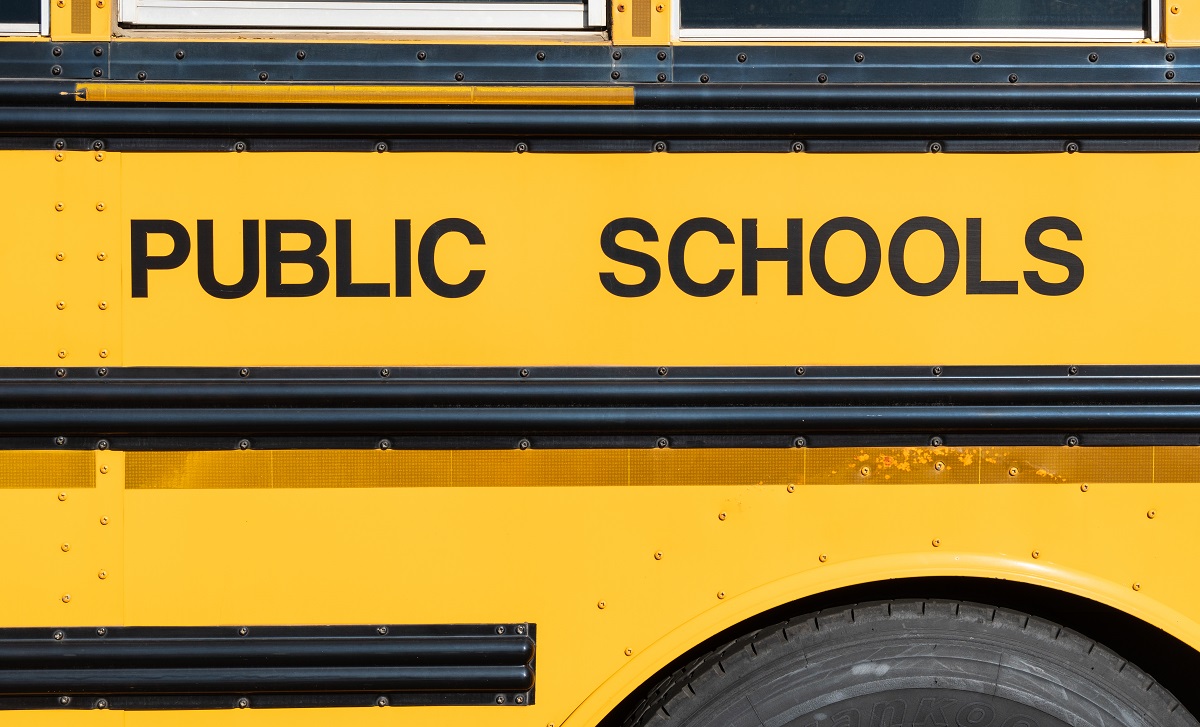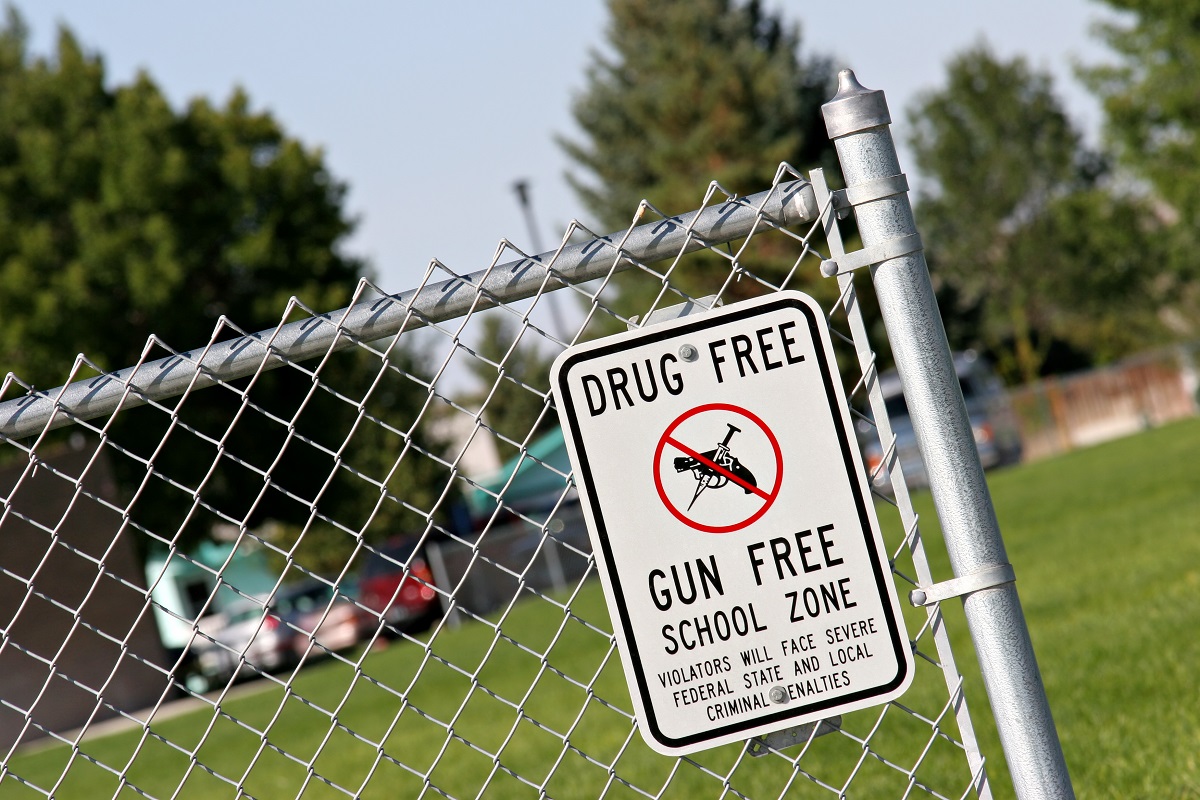Examining a critical issue facing California’s K-12 public schools, the California School Boards Association hosted an April 22 Capitol briefing outlining the association’s new charter school task force report. Uncharted Waters: Recommendations for Prioritizing Student Achievement and Effective Governance in California’s Charter Schools focuses on critical issues that, as primary authorizers, school district boards experience and oversee.
“Given the package of charter school bills that are moving through the Legislature currently, there is renewed interest in our charter schools task force report and its legislative recommendations,” said CSBA Legislative Advocate Carlos Machado.
Despite the interest in legislative happenings, CSBA’s report is a culmination of years-long research, advocacy and discussions on key charter school issues. The publication is grounded in academic achievement and the conditions of children in the effort to close opportunity and achievement gaps, improve outcomes across the board and offer a high-quality education to each student. “What we focus on are our 6.2 million public school students,” CSBA President Emma Turner said.
The charter school task force was composed of school district and county office of education board members and superintendents from across California. Its report focuses on charter schools and their impact in four key areas: quality expectations, equitable access and equity, governance and transparency, and elevating and replicating what works in public education.
CSBA Education Policy Analyst Manuel Buenrostro said the report’s breadth helps serve the goal of strengthening all public schools across California’s landscape, charter or traditional.
“Charters have a place to play as a supplement to local school districts; in some instances, they can fill a void when local districts have underperformed or provide offerings that might be absent in the community.” Buenrostro said. “What is not viable, however, is the vision of charter schools as a replacement to local districts or as a parallel, shadow school system — it simply doesn’t work and it doesn’t scale.”
On the legislative front, CSBA and the task force’s members have a unique and invaluable perspective on this year’s raft of charter school bills, which, if passed, will need to be implemented by school boards. CSBA’s positions on these bills can be monitored at https://bit.ly/2Vi3aDP.
CSBA has already successfully advocated for inclusion of several legislative recommendations from the report, including by supporting Senate Bill 126 (Leyva, D-Chino). Signed into law by Gov. Gavin Newsom on March 5, the bill improves charter school governance and transparency by requiring charter governing boards to comply with the Brown Act, Public Records Act, Political Reform Act and state conflict-of-interest statutes.
Several of the report’s recommendations are also contained in Assembly Bill 1505 (O’Donnell, D-Long Beach), for which CSBA has a support-if-amended position. The legislation includes the following CSBA task force recommendations:
- Prohibit changes to the charter petition on appeal
- Provide districts with more time to act on a petition
- Require petitions to demonstrate why their proposed model cannot be accomplished within the school district structure
- Evaluating charter school impact on districts
Uncharted Waters also recommends that the state strengthen requirements for charter resource centers and limit out-of-district charters. This policy recommendation is contained in AB 1507 (Smith, D-Santa Clarita) a bill supported by CSBA.
Further CSBA charter school resources are available online at www.csba.org/charterschools.





